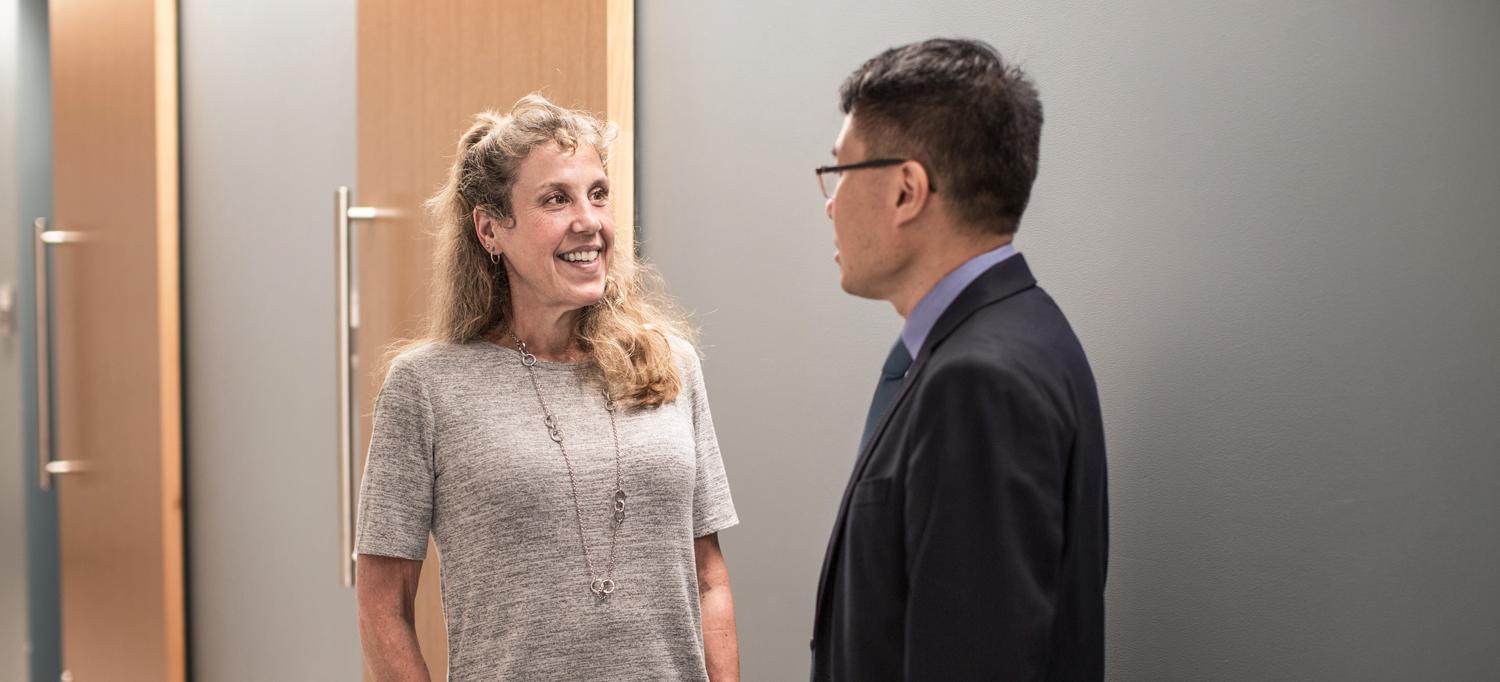
Credit: NYU Langone
The NYU Langone Health medical system announced at-home service for non-invasive (wearable) neuromodulation. The program focuses on entirely home-delivery of transcranial direct current stimulation (tDCS)—a type of noninvasive brain stimulation using very low-intensity current applied to the scalp. As the therapy is entirely remote, with equipment mailed to qualifying individuals, it is available to patients across the US.
The NYU Langone’s tDCS home-therapy program provides virtual treatment for a range of cognitive, speech, motor, or mood symptoms that can occur across array of neurological and psychiatric conditions. tDCS is currently an investigational therapy in the US per FDA guidance, through it is medically approved for various indications internationally. Randomized controlled clinical trials have shown efficacy of tDCS for in treating symptoms related to multiple sclerosis (MS), movement disorders, in neurorehabilitation following brain injury and stroke, and as treatment for fatigue, and for depression including the ELECT trial publishing in the New England Journal of Medicine. There also is early evidence that tDCS treatment may help with recovery following a coronavirus disease (COVID-19) infection, a range of symptoms recognized by National Institute of Health identify and also called “Long-Covid.”
“Many individuals with neurological and psychiatric disorders have difficulty leaving the house because of their condition,” says Dr. Leigh Charvet, PhD, professor in the Department of Neurology, who leads MS-related tDCS research at NYU Langone. “This virtual program brings the latest treatments directly to our patients, enabling us to reach more people.”
Patients enrolled in the NYU Langone’s tDCS Program connect to the video visits using the free telemedicine app. They receive detailed video guidance on how to wear an electrode headset that applies a low-grade electric current on the scalp, the tDCS therapy. Patients also may perform a series of therapeutic activities during the stimulation session at the direction of their provider such as cognitive behavioral therapy (CBT) or light physical exercise.
“We create a personalized care plan for each patient that supports their individual needs and goals,” says Dr. Leigh Charvet. “Treatment can include activities like seated motor exercises or playing cognitive training computer games.”
The program is provided as innovative care, and as such, is not currently covered by insurance; however, NYU Langone’s tDCS treatment packages subsidizes the cost to only $30 per session, which includes the equipment rental and extensive telemedicine therapies and support. NYU Langone’s integrated virtual health platform enables video doctor visits across a wide range of specialties. Patients have a holistic central point of access for all of their healthcare needs by logging in with NYU Langone national-leading online systems. NYU Langone clinical service also is participating in a clinical trial for the use of tDCS in treatment-resistant depression, which reduces the cost for patients who are eligible to enroll.
In one patient testimonial, New Jersey resident Nomi Colton-Max has noticed a “70 percent improvement in the debilitating COVID-19 symptoms” she experienced for nearly a year within weeks of starting the tDCS Program. Nomi indicates, “I’ve finally started walking my dog again, cooking meals for my family, and I don’t need to nap as often after strenuous activities,” says Colton-Max. “Even my remote colleagues have commented on my recent recovery.”